
June 8 is World Oceans Day! This holiday is an international celebration led by the UN to bring awareness to the importance of our oceans and the threats they face. It is also an opportunity to raise global awareness of the benefits humankind derives from the ocean and our individual and collective duty to use its resources sustainably, as future generations will also depend on the oceans for their livelihoods. In keeping with these ideas, this year's theme is "Revitalization: Collective Action for the Ocean." Civil societies, science centers, research institutions, NGOs, businesses in the private and financial sector, communities, and governments all around the world mobilize millions of people for the local and global events. This year marks the first hybrid celebration of the annual event, which will be hosted in-person at the UN Headquarters in New York and broadcast live! Registration for this online event is free and open to the public.
Many countries have celebrated this special day since 1992, following the United Nations Conference on Environment & Development that was held in Rio de Janeiro. In 2008, the UN General Assembly resolved that, as of the following year, June 8th would be designated World Oceans Day. The Declaration of World Oceans Day catalyzed action worldwide and in 2017, 25 years after the first Oceans Day in Rio de Janeiro at UNCED, a special event was held to mark this celebration during the UN's Ocean Conference. The conference and celebration were held to raise awareness in support of Sustainable Development Goal 14 in the 2030 Agenda for Sustainable Development: "Conserve and sustainably use the oceans, seas and marine resources for sustainable development."
Goal 14 is as important today as it was in 2017. Oceans cover three quarters of the Earth's surface, contain 97% of the Earth's water, and represent 99% of the living space on the planet by volume. UNESCO and other UN agencies are working to protect marine and coastal ecosystems to avoid significant adverse impacts. These various organizations oversee environmental issues, strengthen global consensus-building efforts towards improved conservation and use of aquatic resources, and are responsible for the prevention of marine and atmospheric pollution by ships. Keep reading to learn more about our beautiful oceans and what you can do to help protect them!

Oceans absorb about 30% of carbon dioxide produced by humans, buffering the impacts of global warming.
The ocean has also absorbed more than 90% of the excess heat in the climate system. Ocean heat is currently at record levels, causing widespread marine heatwaves, and increasing levels of dissolved carbon are making the seawater more acidic.
Over 3 billion people depend on marine and coastal biodiversity for their livelihoods.
Marine fisheries directly and indirectly employ over 200 million people alone! Not to mention, around 80% of the volume of international trade in goods is carried by sea, and the percentage is even higher for most developing countries, making sustainable and climate-resilient transport - including maritime transport - key to sustainable development.
The ocean contains 50-80% of all life on Earth and is home to the world's largest living structure - the Great Barrier Reef. It is 2,600 km long and can be seen from the Moon.
We have only explored about 5% of the world's oceans, leaving so much more to be discovered. According to the World Register of Marine Species (WoRMS), there are currently at least 236,878 named marine species.
There are lakes, rivers, and even waterfalls in the ocean!
Because we think of the oceans as being a thing in and of themselves, we forget that they are more like continents - even bigger. Similar to land, there are rivers and lakes within oceans, and amazingly, the largest waterfall in the world is actually underwater: the Denmark Straight Cataract. Not only that, but the longest mountain range - the Ocean Ridge - and the deepest canyon - the Zhemchug Canyon in the Bering Strait!
90% of volcanic activity happens in the ocean.
Of course, we know volcanoes happen in the sea. That’s how we’ve come to have island paradises like Hawaii and Fiji. That said, the amount of volcanic activity in the ocean far exceeds what happens on land. In the South Pacific, there is one area with over 1000 volcanoes in a space smaller than New York state!


Kids
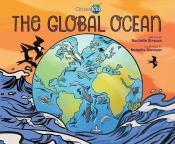
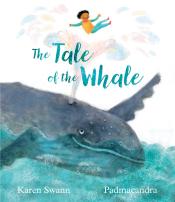
The Tale of the Whale by Karen Swann
Oceanarium by Loveday Trinick
Life in Hot Water: Wildlife at the Bottom of the Ocean by Mary Batten & Thomas Gonzalez
The Global Ocean by Rochelle Strauss
Teens
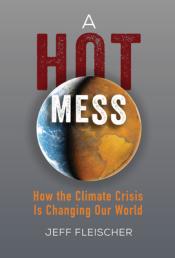
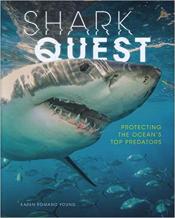
When Sharks Attack with Kindness by Andrés J. Colmenares
Shark Quest: Protecting the Ocean's Top Predators by Karen Romano Young
A Hot Mess: How the Climate Crisis is Changing Our World by Jeff Fleischer
What's Really Happening to Our Planet?: the Facts Simply Explained by Tony Juniper
Adults

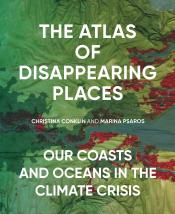
The Atlas of Disappearing Places: Our Coasts and
Oceans in the Climate Crisis by Christina Conklin
The Blue Wonder: Why the Sea Glows, Fish Sing, and Other Astonishing Insights from the Ocean by Frauke Bagusche
The Brilliant Abyss: Exploring the Majestic Hidden Life of the Deep Ocean and the Looming Threat that Imperils It by Helen Scales
Water: a Biography by Giulio Boccaletti